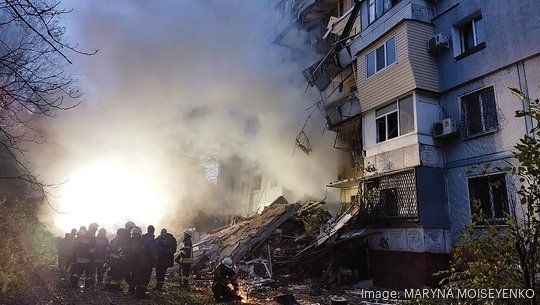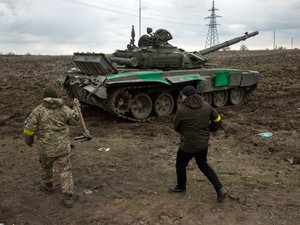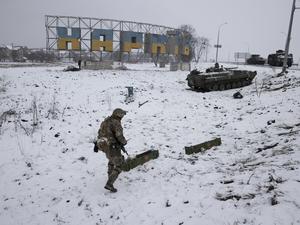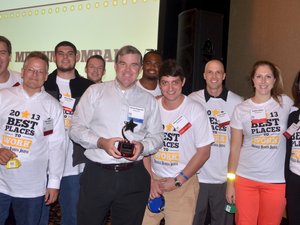
Checking in with employees in war zones has become the new normal for some tech CEOs – including in the Triangle, where, nearly two years after Russia invaded Ukraine, executives at some firms are still grappling with how to lead from the U.S. amid life-or-death conflict abroad.
The lessons they’re learning can be applied to companies everywhere.
Take Durham-based Percona, a remotely-operated firm dealing in open-source database software support and services with about 15 employees in Ukraine. In 2022, CEO Ann Schlemmer had hoped the conflict was temporary, as she grappled with how to support colleagues in proximity to airstrikes. But she said in a recent interview that, unfortunately, it’s become the new normal – a reality that’s just part of day-to-day leadership.
She – and her team – have had to adapt.
“I am still very grateful that, to date, we haven’t had anyone from Percona die, because that is a true concern … when living in a war zone,” she said. “But unfortunately, it’s a constant that they are in war.”
Schlemmer credits a “resilient” team with the fact that Percona has stayed productive through it all. The ability to work has given some Ukrainian employees an “opportunity to not always be immersed in the war,” an outlet as they strive for normalcy.
The situation has also taught Schlemmer important leadership lessons, such as the importance of being mindful about burnout, she said.
When you live in proximity to conflict, everything can be a challenge, even taking vacation, she said. Burnout awareness is something she hadn’t really thought of as conflict priority in 2022 – but it’s something the Percona leadership team is cognizant of every day now, Schlemmer said.
Her key leadership takeaway is empathy.
“I can’t ever make the assumption that I know what someone else is going through,” she said. “It’s taking the lead from folks in what do they need? What do they need to be supported?”
Percona also has nine staff members in Russia, and they too have adjusted. Early on in the conflict, even getting those employees paychecks could be complicated due to bank sanctions. Percona – and companies like it – have to been ever-aware of changing regulations.
It’s not just the situation in Ukraine. One of its 330 staff members is in Israel, dealing with the ongoing conflict with Hamas in Gaza.
As geopolitical conflict doesn’t appear to be alleviating in the short-term, Schlemmer said it’s important to keep communicating – and keep empathizing.
“It’s not just a job,” she said. “This is a group of people that care deeply, and it is driven by a mission and purpose and alignment.”



